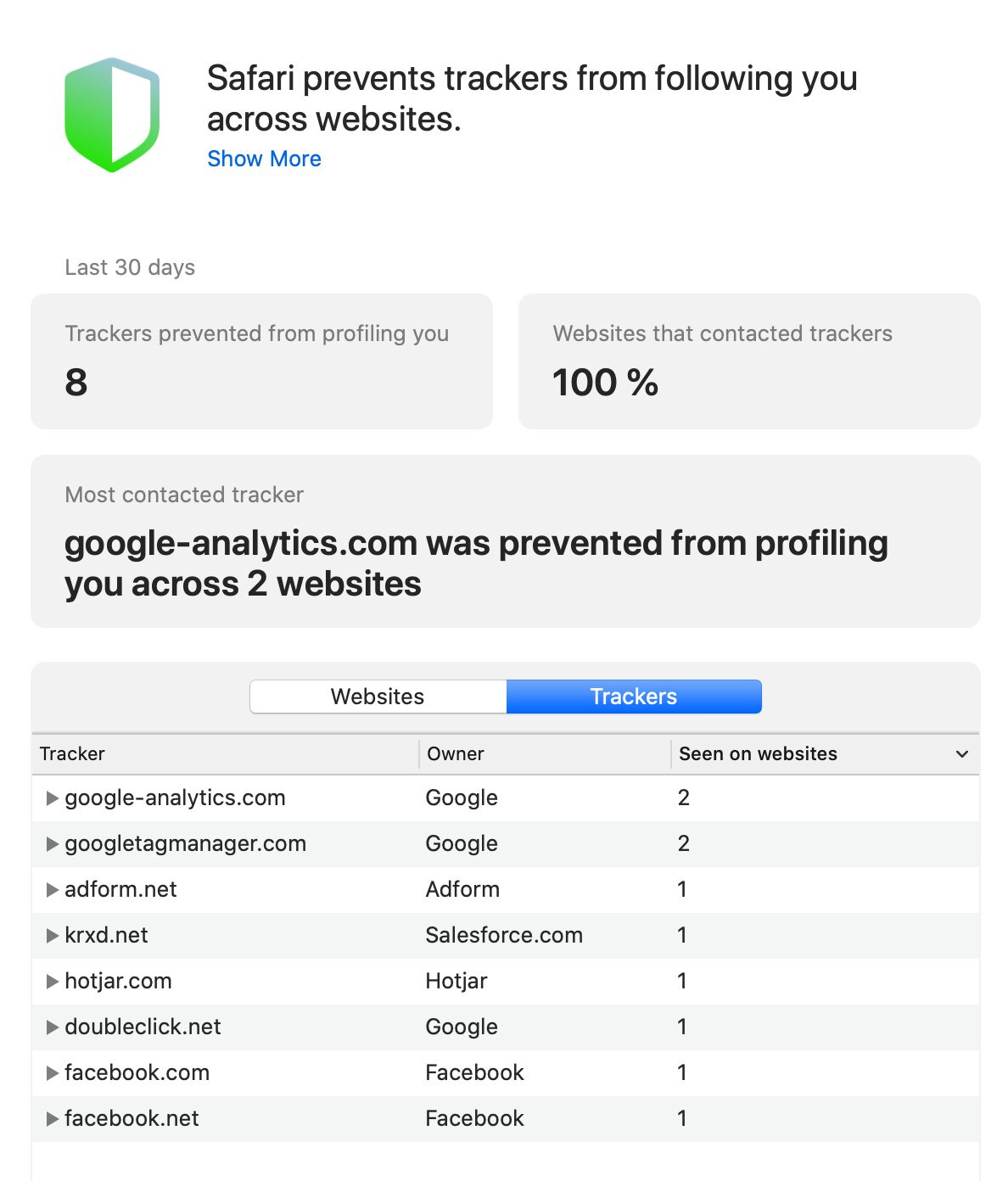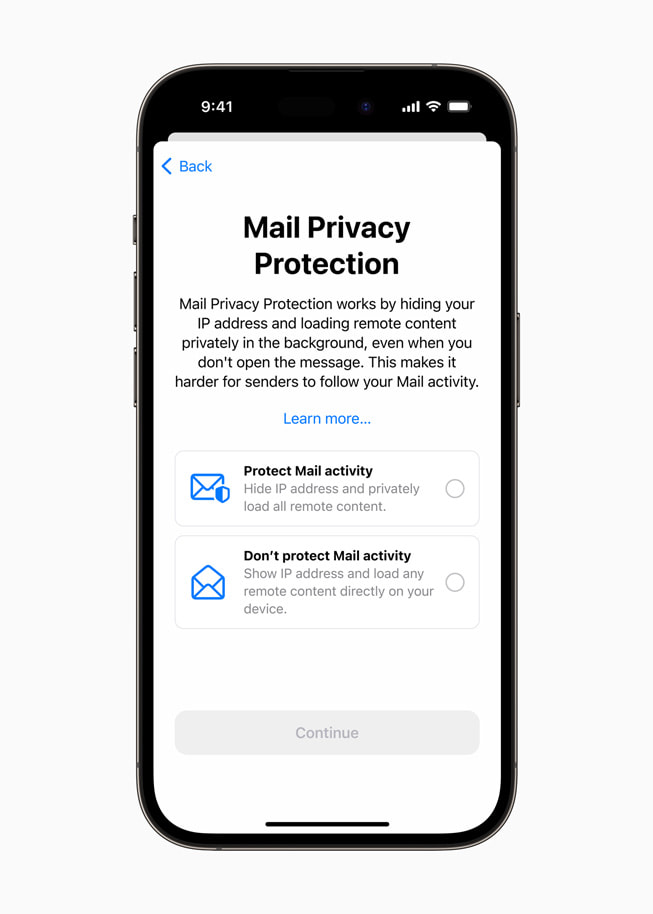Mobile trends
August 1, 2025
A Timeline of Apple's Privacy Changes in Safari and iOS: An Infographic
Apple has consistently prioritized user privacy, especially with its Safari browser and iOS operating system. Safari now reaches over 1 billion users worldwide and accounts for nearly 18% of the global browser market share as of 2025, making its privacy decisions highly influential across the web.
In recent years, Apple has introduced a steady stream of privacy enhancements, from Intelligent Tracking Prevention (ITP) in Safari to Mail Privacy Protection (MPP) in iOS. Each step has placed stricter limits on how user data is collected and used. These changes have had significant implications for users, developers, and marketers. For example, since Apple’s App Tracking Transparency (ATT) launched in 2021, studies show that roughly 95% of U.S. users opt out of tracking, fundamentally shifting how advertisers measure performance and attribution.
These moves have also reshaped the broader digital environment. Major platforms, ad networks, and analytics providers have had to rethink long‑standing approaches, paving the way for a stronger focus on first‑party data and more privacy‑aware marketing strategies.
At Z2A Digital, we’ve closely followed these developments to adapt our strategies accordingly. Apple’s updates have even influenced how major platforms like Facebook and Google handle user data, prompting industry-wide moves toward first-party data collection and privacy-friendly marketing methods.
A simple timeline helps show how these updates have rolled out over the years and where the biggest shifts have happened. To give a clearer picture of how Apple’s approach has evolved, we’ve mapped out th major updates and milestones.
Here’s a timeline highlighting the key privacy changes in Safari and iOS, presented in an infographic format for clarity and ease of understanding.
June 2017 – Safari Introduces Intelligent Tracking Prevention (ITP) 1.0
Apple announced ITP 1.0 at WWDC. This update limited the use of cookies and reduced cross‑site tracking.
September 2018 – ITP 2.0 in Safari
ITP 2.0 removed the 24‑hour cookie access window and introduced stricter rules on first‑party cookies, further restricting advertisers’ ability to track users.
March 2019 – ITP 2.1
A seven‑day cap on script‑writable storage (including cookies) was introduced by ITP 2.1, limiting long‑term tracking while still allowing limited personalization.
September 2019 – ITP 2.2 & 2.3
These updates shortened cookie lifespans even further and blocked workarounds used by marketers to bypass previous ITP rules.

Source: Apple’s official Safari Privacy Report press material (2020)
June 2020 – iOS 14 Announcement
At WWDC 2020, Apple revealed iOS 14 with major privacy updates, including the now‑famous App Tracking Transparency (ATT) framework.
This update marked the start of Apple’s stronger stance on data privacy:
December 2020 – iOS 14.3 Released
This release brought App Tracking Transparency (ATT) into iOS, requiring apps to ask for permission before tracking users across apps and websites.
April 2021 – iOS 14.5 Launch
ATT went live. Apps were now required to display a prompt asking for explicit user consent to track activity for advertising purposes.
September 2021 – iOS 15 Release
iOS 15 introduced Mail Privacy Protection (hiding IP addresses and email opens), plus Hide My Email and iCloud+ Private Relay.

Source: Apple Newsroom
September 2023 – Safari in iOS 17
Safari 17 expanded privacy measures by stripping tracking IDs from URLs in Messages and Mail, locking private tabs, and disabling extensions by default in private browsing.
May 2024 – Privacy Manifest Requirement
Apple announced that all App Store apps must now include a “Privacy Manifest,” detailing data collection, SDK usage, and tracking behavior for full transparency.
April 2025 – iOS 18.5 Beta Adds Granular ATT Consent
A new ATT prompt began testing, giving users the ability to allow some tracking types (like analytics) while denying others (like targeted ads).
June 2025 – WWDC & iOS 26 Unveiled
Apple revealed iOS 26 with major privacy updates:
- Expanded Link Tracking Protection in Safari, Messages, and Mail.
- On‑device Apple Intelligence AI, keeping personal data on device.
- New privacy settings like quantum‑secure TLS and wired accessory permissions.
July 2025 – iOS 26 Public Beta
The public beta introduced users to Apple Intelligence features (including on‑device translation and smarter Siri), improved fingerprinting protection, and more granular privacy controls.
Ongoing - Safari and iOS Privacy Updates
Apple continues to update its privacy policies and features in Safari and iOS, focusing on enhancing user privacy and data security.
These changes by Apple reflect a growing trend toward greater user privacy. They have significant implications for how businesses approach mobile marketing, user tracking, and data collection. Adapting to these changes requires a shift toward more privacy‑conscious marketing practices, focusing on first‑party data and contextual advertising strategies.
With Apple setting the tone, regulators in regions like the EU and U.S. are drafting even stricter privacy rules, meaning these trends are only accelerating. Apple’s commitment to privacy sets a standard that is likely to be followed by other tech giants, signaling a broader shift in the industry toward prioritizing user privacy.
If you’re interested in seeing how these privacy updates translate into real-world marketing strategies, check out our case study on scaling installs for Headway under Apple’s ATT framework. It’s a great example of adapting to Apple’s Privacy rules while still driving measurable growth.
Ready to think differently about user acquisition?
Subscribe to our newsletter and stay updated with the latest UA strategies and mobile marketing trends.





.png)
.webp)

.png)


